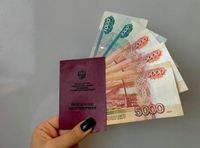In recent discussions regarding the future of pensions in Russia, especially the possibility of receiving a pension of 100,000 rubles a month, the conversation has been significantly colored by expert opinions and survey results. Sergei Gavrilov, a deputy from the State Duma and a member of the CPRF faction, has been vocal about the realities surrounding such expectations. He cautioned that under the current pension system, which requires the insurance part of the pension to exceed 91,000 rubles, the hopes of average citizens appear misguided.
A recent survey conducted by Banki.ru shed some light on public sentiment on this matter. Among respondents earning more than 200,000 rubles monthly, an impressive 72% viewed a pension of 100,000 rubles as a comfortable standard. However, the road to achieving that lofty goal is paved with several stringent conditions.
To qualify for such a pension, Gavrilov articulated three critical requirements: first, individuals must have an official salary of at least 230,000 rubles over their entire working life. Second, they would need an uninterrupted working experience of 64 years, and lastly, they should delay retirement until the age of 75. “All deviations from these parameters lead to a significant reduction in the final pension amount,” Gavrilov stated.
Gavrilov’s statements reflect a broader concern regarding the need for reform in Russia's current pension system. He suggested that while the existing model has its limitations, alternatives such as an additional funded pension built through voluntary contributions or investment strategies could provide more realistic options for future pensioners.
In lines with Gavrilov’s caution, the Social Fund of Russia provided insights into obtaining a monthly pension of 100,000 rubles. They outlined that not only does a monthly income of at least 230,000 rubles before taxes represent a crucial requirement, but potential recipients must also accumulate at least 625 pension points. This accumulation is contingent upon having a work experience of no less than 62.5 years, making it an almost Herculean task for the average Russian worker.
In detail, according to the Social Fund's calculations, the year 2025 will see that a maximum of 10 pension points can be earned annually, which requires maintaining an income of 230,000 rubles monthly pre-tax. It's important to note that earnings exceeding this amount do not contribute to the pension calculations.
Upon reflection, the conditions for obtaining a hefty pension often lead to more questions than answers. Gavrilov pointed out humorously on social media, “To work until 80 is a strange recommendation,” underlining the unrealistic nature of the expectations set for the average citizen. He added that another feasible scenario for achieving a 100,000 ruble pension would involve an official salary complemented by approximately 44 years of work experience, coupled with delayed retirement to the age of 70.
This conversation does not happen in a vacuum. The perspective of the average citizen, especially in light of a recent survey where residents of Volgograd expressed their desire for a pension of 100,000 rubles upon retirement, paints a picture of widespread expectations that far exceed the normative reality.
Experts suggest that the average working citizen would find it challenging to meet the outlined requirements for such a pension. Currently, the structure of the system indicates that to receive 100,000 rubles, it is unlikely unless workers maintain a continuous 62.5 years of employment, which would necessitate starting their careers immediately after reaching adulthood and not retiring until they are well into their 80s.
The realities don’t just exist in a theoretical space. Several alternatives for boosting pension points exist, such as delaying retirement or accruing credits during periods spent on military service or on childcare leave. “Retiring 8 years later can double the number of accumulated points,” noted an expert from the Social Fund.
Moreover, unique categories citizens can claim additional pension credits for include military service, caregiving for children under the age of 1.5 years, and looking after disabled persons.
As reforms appear necessary for addressing the mounting dissatisfaction and unrealistic expectations within the populace regarding pensions, there is an urgent conversation to be had about restructuring and innovating the current system to meet citizens' needs. The upcoming indexing of social pensions in Russia—a proposed increase of 14.75% starting April 1, 2025—serves as a glimmer of hope for many who have not yet met the stringent criteria for the insurance pension. However, with the looming changes, the question remains: will these efforts be enough to align expectations with reality?
In summary, the ambitious goal for a monthly pension of 100,000 rubles reflects widespread desires but stands against the backdrop of a rigid system laden with obstacles that many average workers find insurmountable without significant reforms. The dynamic interplay of earnings, experience, and the structure of the pension system requires a meticulous examination to provide clearer pathways for future retirees.







